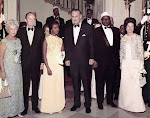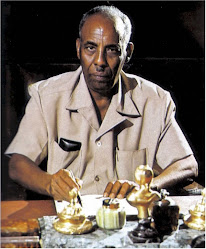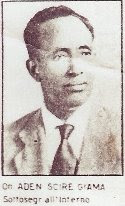Shams Hussain, an academic who recently visited Dubai, said there are also ‘invisible actors’ intervening in Somalia
Dubai: An analyst on Somali affairs has said foreign intervention in Somalia — left without a central government since the 1991 ousting of its then military ruler — is “the root cause of civil strife”.
Shams Hussain, an academic who holds dual Somali and British nationality, said: “One would argue that 90 per cent of the problems in Somalia are based on foreign intervention. They include regional and international actors.”
Shams, on a recent visit to the UAE, identified the regional actors as mainly the neighbouring countries of Ethiopia and Kenya, as well as the “IGAD counters”. IGAD — the Intergovernmental Authority on Development — is a regional bloc of east African nations including Somalia. One of its stated objectives is to support “the prevention, management and resolution of inter-state and intra-state conflicts through dialogue.”
Meanwhile, the international actors, according to Shams, include the US and the European Union. In an exclusive interview with Gulf News, Shams said: “There are also invisible actors who intervene through others. Piracy and the [Al Qaida-linked] Al Shabab militia were created by outsiders.
“But exactly who is behind it all, I don’t know. What I do know is that without outside support and a blind eye, they would not have lasted this long.” Shams pointed out that divisions in Somalia go back to the colonial period that led it to be divided into five parts: British Somaliland, French Somaliland, Italian Somalia, the Ogaden-Haud and reserved areas (given by the UK to Ethiopia) and the Northern Frontier Districts (ceded to Kenya by the UK).
She added that in 1991, the former British Somaliland in the north west dissolved the union and engaged in separate peace processes inside the country, which were “locally funded, implementing and electing a government and a parliament that is also regulated by the House of Elders.” However, Somaliland so far remains unrecognised internationally.
“Somaliland emerged as a hot potato to potential interventionists. On the one hand, its stability was not conducive for foreign troops. When they were united Somalis were accused of being ‘expansionists’ and not adhering to the boundaries left by the European colonial powers. When divided, they were accused of being secessionists.”
Meanwhile, developments have taken a different turn in the southern regions, Shams added. “The southern region — a former Italian colony — branched out differently. Two decades have passed with internal conflict and despite 13 peacemaking conferences worldwide the likelihood of peace stays delayed,” she said. From 2000 to 2012, a series of internationally recognised ‘transitional’ institutions were formed. Today, a permanent Federal Government of Somalia is in place. “We are pleased that the so-called transitional governments ended,” Shams said, but though “the recognition of the Somali federal government is a positive step, one has to bear in mind that there are foreign troops inside Somalia. This time they are fellow Africans funded by international actors who purport to ‘help stability’. When asked why foreign powers would be interested in Somalia, Shams replied: “The answer is simple: strategy and resources. Somalia is located in one of the most strategic places in the world, connecting Africa, Asia and Europe through shipping lines of the Red Sea and the Indian Ocean, not to mention the Suez Canal and the oil routes of Arabia.”
She added that Somalia is rich in mineral resources, including oil and gas, livestock, agriculture and fishery. “I think both the regional and international actors should revisit the nature of their involvement in Somalia. These actors are talking about their security, but nobody mentions the sovereignty infringement of Somalia, the illegal fishing, toxic waste dumping,” she said.
Despite the challenges facing Somalia, Shams remains an optimist, putting her faith in the spirit of her people. “Somalis have suffered a lot, but they exhibited a magnificent strength and resilience.”




.jpg)











No comments:
Post a Comment